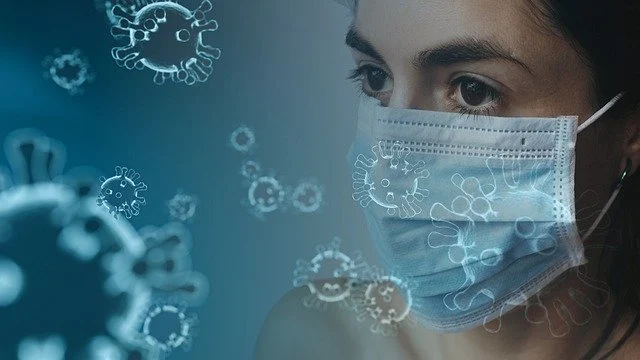How Does Corona Virus Spread
1. How does COVID-19 Spread ?
People can catch COVID-19 from others who
have the virus. The disease can spread from person to person through small
droplets from the nose or mouth which are spread when a person with COVID-19
coughs or exhales. These droplets land on objects and surfaces around the
person. Other people then catch COVID-19 by touching these objects or surfaces.
Then touching their eyes, nose or mouth. People can also catch COVID-19. If
they breathe in droplets from a person with COVID-19 who coughs out or exhales
droplets. This is a person who is sick.
2. Who is at risk of
developing severe illness ?
While we are
still learning about how COVID-2019 affects people, older persons and persons
with preexisting medical conditions (such as high blood pressure, heart
disease, lung disease, cancer or diabetes) appear to develop serious illness
more often than others.
3. Is there a vaccine drug or
treatment for COVID-19 ?
Not yet. To
date, there is no vaccine and no specific antiviral medicine to prevent or
treat COVID-2019. However, those affected should receive care to relieve
symptoms. People with serious illness should be hospitalized. Most patients
recover thanks to supportive care. Possible vaccines and some specific drug
treatments are under investigation. They are being tested through clinical
trials.
The most
effective ways to protect yourself and others against
COVID-19 are
to frequently clean your hands, cover your cough with the bend of elbow or
tissue, and maintain a distance of at least 1 meter (3 feet) from people who
are coughing or sneezing
4. Is COVID-19 the same as
SARS ?
No. The
virus that causes COVID-19 and the one that caused the outbreak of Severe Acute
Respiratory Syndrome (SARS) in 2003 are related to each other genetically, but
the diseases they cause are quite different.
SARS was
more deadly but much less infectious than COVID-19. There have been no outbreaks
of SARS anywhere in the world since 2003.
5. How to put on use take off and dispose of a
mask ?
1. Remember, a mask should only be used by
health workers, care takers, and individuals with respiratory symptoms, such as
fever and cough.
2. Before touching the mask, clean hands with
an alcohol based hand rub or soap and water
3. Take the mask and inspect it for tears or
holes. Orient which side is the top side (where the metal strip is).
4. Orient which side is the top side (where the
metal strip is).
5. Ensure the proper side of the mask faces
outwards (the coloured side).
6. Place the mask to your face. Pinch the
metal strip or stiff edge of the mask so it moulds to the shape of your nose.
7. Pull down the mask’s bottom so it covers your mouth
and your chin.
8. After use, take off the mask; remove the elastic loops
from behind the ears while keeping the mask away from your face and clothes, to
avoid touching potentially contaminated surfaces of the mask.
9. Discard the mask in a closed bin immediately after
use.
10. Perform hand hygiene after touching or discarding the
mask – Use alcohol-based hand rub or, if visibly soiled, wash your hands with
soap and water.
6. How long is the incubation
period for COVID-19 ?
The “incubation period” means the time between catching
the virus and beginning to have symptoms of the disease. Most estimates of the
incubation period for COVID-19 range from 1-14 days, most commonly around five
days. These estimates will be updated as more data become available.
7. How long does the virus
survive on surfaces?
It is not certain how long the virus that causes COVID-19
survives on surfaces, but it seems to behave like other corona viruses. Studies
suggest that corona viruses (including preliminary information on the COVID-19
virus) may persist on surfaces for a few hours or up to several days. This may
vary under different conditions (e.g. type of surface, temperature or humidity
of the environment).
If you think a surface may be infected, clean it with
simple disinfectant to kill the virus and protect yourself and others. Clean
your hands with an alcohol-based hand rub or wash them with soap and water.
Avoid touching your eyes, mouth, or nose.
8. Is there anything I should
not do ?
The following measures ARE NOT effective against COVID 2019
and can be harmful:
I.
Smoking
II.
Wearing
multiple masks
III.
Taking
antibiotics.
In any case,
if you have fever, cough and difficulty breathing seek medical care early to reduce
the risk of developing a more severe infection and be sure to share your recent
travel history with your health care provider.
Primary source
www.Mohfw.gov.in






No comments: